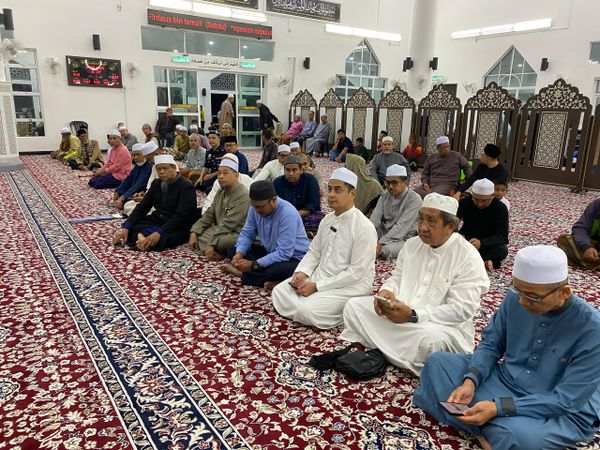By Danial Dzulkifly
SHAH ALAM, March 13 — The state administration has reaffirmed that zakat fitrah (personal tithe) in Selangor is to be paid in cash, with set rates of RM7, RM15, and RM22, rather than rice, following recent concerns of mixed local and imported rice.
State executive councillor for Islamic affairs and innovation Dr Mohammad Fahmi Ngah said this has long been the official stance of the state and has received the endorsement of the Sultan of Selangor Sultan Sharafuddin Idris Shah Alhaj.
“According to the official fatwa in Selangor, zakat fitrah is to be paid in cash rather than in the form of rice. The minimum rate is RM7, calculated based on the weight of one gantang (bushel) or approximately 2.6kg of local rice or five per cent Super Special Tempatan rice.
“If an individual prefers to pay according to the type of rice they consume daily, the rate can go up to RM15 or RM22, for instance, for those who consume premium rice such as Japanese or Basmati rice,” he said during the Kembara Masjid programme at Masjid As Sajidin in Batang Kali, Hulu Selangor yesterday.
Fahmi added that the matter should not become a subject of debate, as the ruling simplifies the process for all Muslims in the state.
“This should not be turned into a polemic. The decision has been made to make things easier, and it has been approved by the religious authorities,” he said.
The clarification comes after Minister in the Prime Minister’s Department (Religious Affairs) Datuk Mohd Na’im Mokhtar said that the Fatwa Committee and the Islamic Religious Councils of the respective states will decide on the setting of zakat fitrah rates based on rice grades.
His remarks followed reports from the Biotechnology and Nanotechnology Research Centre of the Malaysian Agricultural Research and Development Institute, which found that about 50 per cent of the 5,000 samples of imported rice seized by the authorities were mixed with local white rice.
Meanwhile, Fahmi also addressed the issue of multi-tiered graves, explaining that while there is no immediate need for such burial plots in Selangor, the state government is already conducting preliminary studies to prepare for future requirements.
“For now, there is no pressing need for tiered graves, as we still have ample land available.
“However, the government has conducted studies as part of its long-term planning,’’ he said.
Fahmi also assured that any changes to the burial system would be made in accordance with Islamic rulings and the community’s needs.
Previously in October last year, the Selangor Islamic Religious Department said it was examining the implementation of tiered graves to address the possible issue of land scarcity for Muslim burials in the state.




